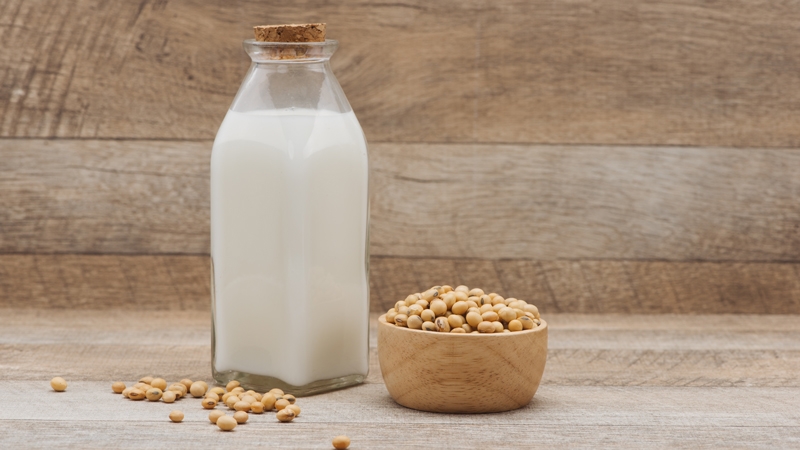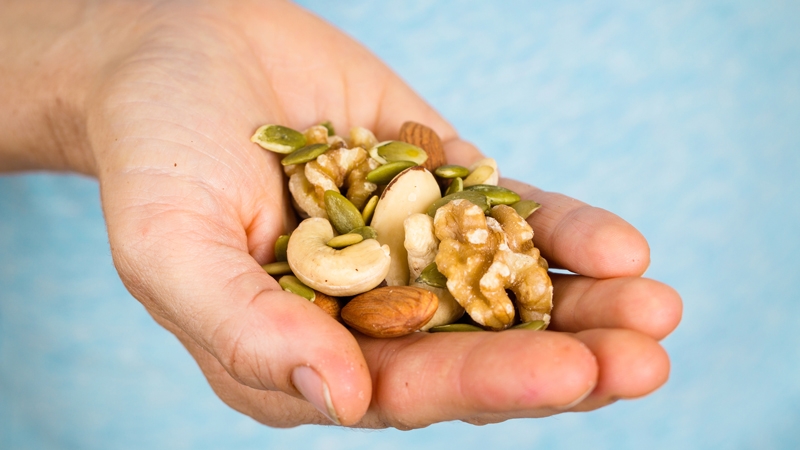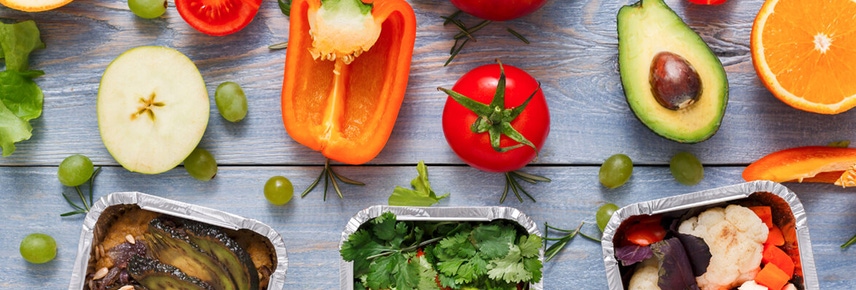
5 foods a dietitian always add to their basket and 5 they don't
Making healthy choices for your family can be overwhelming, as you navigate the huge range of products that are vying for trolley space. We asked our nutrition team to share the products that always make the list, and for some simple swaps to make your supermarket shop a little healthier.
ALWAYS ADD TO THE BASKET
Extra Virgin Olive oil

A hero of the Mediterranean diet, olive oil is a great addition to any shopping list. With healthy monounsaturated fatty acids and high amounts of polyphenols (powerful plant compounds), ealthy diets that contain extra virgin olive oil (EVOO) have been associated with improved longevity when consumed as part of a healthy diet.
Suitable for almost any type of cooking or baking, whether it be drizzled through a salad, keeping your baking creations delicious and moist, or even a staple in your beauty regime, EVOO is a great pantry staple.
There’s a misconception that olive oil isn’t suitable for cooking, but it’s an excellent oil for cooking due to its high smoke point (190-220°C) and high level of protective antioxidants.
Soy milk

The benefits of soy are plentiful – think high quality protein, high in fibre and protective phytoestrogens (naturally ocurring plant food substances with protective health benefits). And one of the easiest ways to regularly include soy in your diet is with soy milk.
Soy milk delivers important isoflavones and a calcium-enriched variety will provide as much calcium as regular dairy milk, minus the dietary cholesterol, animal fat and lactose. It is also often fortified with vitamin D, boosting its already healthy nutrition profile, but check the label to be sure.
Soy milk can generally be used as a substitute wherever you would normally use dairy milk, and it’s lactose-free, gluten-free, nut-free and some are even low-FODMAP. Better yet it can be enjoyed by the whole family. From the age of 12 months,
children can drink full fat soy milk as a complete replacement for dairy or a mix of both.
Legumes/beans
.png)
Definitely an unsung hero of traditional cuisines and loved by dietitians. Known as the #1 food for longevity, they are an important part of each of the Blue Zone cuisines, those communities known to live well into their 9th and 10th decades. Legumes are defined as any plant that grows in pods. This includes soybeans, peanuts, fresh peas and beans, and pulses such as dried beans (chickpeas, black beans, etc), dried peas, lentils and lupins.
Legumes are rich sources of quality plant protein, low GI carbs and prebiotic fibre. They also contain minerals such as zinc and iron and disease fighting antioxidants and phytonutrients. They are also gluten free. Apart from their remarkable nutritional profile, they are also inexpensive, versatile and environmentally beneficial. It is far more economical to produce plant proteins than animal proteins. And farmers have relied on legumes for centuries to help fertilise the soil (fix nitrogen) by rotating legume crops with other grain crops.
You’ll find a large variety of dried and canned legumes/beans available in the supermarket. There are also frozen peas, beans, soybeans (edamame), broad beans, etc., quick and easy to eat as a vegetable with your dinner. And it’s easy to just open a can, rinse and drain then add the beans to salads, soups. And my favourite, baked beans on toast, a quick nutritious meal.
Frozen vegetables (and fruits)
.jpg)
While cooking with fresh, seasonal fruit and veggies is best, also keep frozen veggies and fruits on hand as they are a fabulous backup option. They’re generally cheaper than their fresh counterparts, convenient and packed with goodness – because they’re frozen while still fresh, they don’t get the chance to lose nutrients and will help you Tryfor5.
Buying frozen also means there’s likely to be less wastage, as they can be stored in the freezer and used when convenient – so there’s no waste and no huge hurry to find a use for it before it goes off.
Nuts/nut butter

There are so many reasons to enjoy a handful of nuts every day – they’re good for your weight, good for your heart, and help ward off chronic diseases.
Nuts are quite literally nutrition powerhouses. Just one handful (30 grams) can go a long way to helping you reach nutrition targets due to how much protein, iron, zinc, calcium, fibre and omega-3 fats they contain.
A great way to up your nut intake is with a good quality nut butter. Choose nut butters that have no, or are low in added salt and sugar. There’s a huge range now available in all supermarkets, from peanut to cashew and nut butters that also mix in seeds. Add them to smoothies, top your porridge or pimp your cookies.
SIMPLE SWAPS FOR A HEALTHIER SHOP
While all foods can be included as part of a healthy, balanced diet, these simple swaps can help make prioritising nutritious foods in your diet a little bit easier.
Swap | For |
Lollies | Fresh, frozen or dried fruit |
Pre-made frozen pies and sausage rolls | Falafels, plant-based meat alternatives or try making your own |
Instant powdered soups | Chilled soup pouches with lots of veggies, or try making your own from scratch |
Soft drinks | Water or try adding some cut fruit to sparkling water |
Chips | Veggie sticks and hummus, homemade popcorn |

The latest nutrition advice, plus health and wellness tips delivered to your inbox monthly

